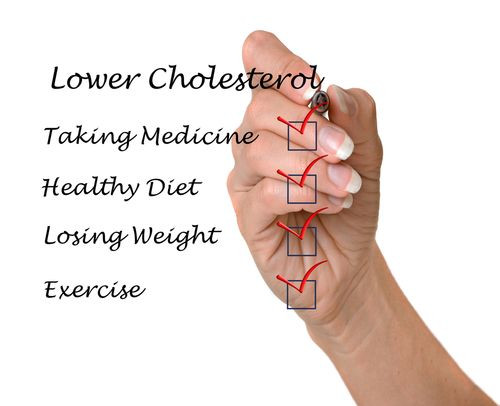Population-Based Study Shows Possible Link Between High Cholesterol And Breast Cancer

A study conducted over a 14-year period on more than one million patients in the UK found an association between high cholesterol and breast cancer. The research will be presented today at Frontiers in CardioVascular Biology (FCVB) 2014 in Barcelona, Spain. The meeting is organized by the Council on Basic Cardiovascular Science of the European Society of Cardiology (ESC) in collaboration with 13 European cardiovascular science societies.
Dr. Rahul Potluri, founder of the ACALM Study Unit and lead author, said in a press release, "Our preliminary study suggests that women with high cholesterol in their blood may be at greater risk of getting breast cancer. It raises the possibility of preventing breast cancer with statins, which lower cholesterol, but as this is a primitive study, significant time and research is needed before this idea can be tested."
Previous studies have shown a link between cholesterol and breast cancer. Using mouse models the studies showed that a byproduct of cholesterol functions like the hormone estrogen, and aids in the growth of breast tumors. While medicines used to reduce cholesterol have proven to be effective in treating breast cancer in mice, new research conducted at the University of Missouri has showed the tumor-destroying capability of a cholesterol-fighting molecule on human breast cancer cells. With these evidences, Dr. Potluri and his team decided to conduct a population-based study to investigate “whether there was any association between hyperlipidaemia, which is high cholesterol essentially, and breast cancer."
The researchers conducted a retrospective analysis of more than 1 million patients across the UK between 2000 and 2013 from the Algorithm for Comorbidities, Associations, Length of stay and Mortality (ACALM) clinical database. There were 664,159 women and of these, 22 938 had hyperlipidaemia and 9,312 had breast cancer. Around 530 women with hyperlipidaemia developed breast cancer. The researchers used a statistical model to study the association between hyperlipidaemia and breast cancer. They found that having hyperlipidaemia increased the risk of breast cancer by 1.64 times.
"We found that women with high cholesterol had a significantly greater chance of developing breast cancer. This was an observational study so we can't conclude that high cholesterol causes breast cancer but the strength of this association warrants further investigation," said Dr. Potluri. "A prospective study that monitors the risk of breast cancer in women with and without high cholesterol is needed to confirm what we observed. If the connection between high cholesterol and breast cancer is validated, the next step would be to see if lowering cholesterol with statins can reduce the risk of developing cancer. "
Breast cancer is the most common form of cancer among American women and may be the cause of an estimated 40,000 deaths in 2014. This new research may provide beneficial insights into a new course of action in preventing the disease.



























